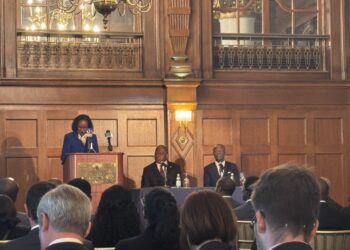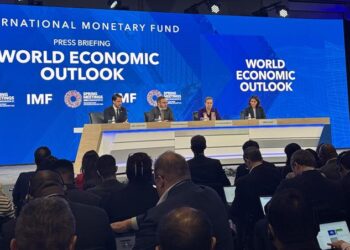Julius Berger’s Managing Director, Wolfgang Goetsch has attributed an envisaged positive business outlook for Nigeria’s construction sector to the government’s Economic Recovery and Growth Plan.
Wolfgang, who spoke to journalists earlier this week on the sidelines of the company’s Investor Relations forum in Lagos, disclosed that the country’s construction sector is expected to grow in 2018 despite certain challenges.
According to him, Nigeria’s GDP has continued rise, even as inflation decreases and the foreign reserves increases, thanks to favourable crude oil prices. These factors, he said, had led to the International Monetary Fund’s (IMF) elevation of the country’s 2018 growth forecast to 2.1%.
He also gave other reasons for his prediction, stating that the recently-witnessed stability in Nigeria’s currency market, which in the past had caused volatility. He also pointed to investors’ growing desire to readily embrace risks, which has resulted in “more time-intense and intricate contract negotiations requiring more rigorous evaluation.”
As the Economic Recovery and Growth Plan has now been in place, we continue to eagerly anticipate sustainable growth, and we look forward to the tangible positive outcomes for the construction industry, and therefore for our company.– Wolfgang Goetsch
What does this mean for the company and its shareholders?
In view of the highlighted favourable economic conditions and rising investor confidence, the construction industry in Nigeria will generally receive the much-needed boost to ensure productivity. This will in turn benefit companies such as Julius Berger, in the sense that revenue will increase, as well as profitability. As such, the company’s shareholders can be guaranteed of higher dividends.
Already, Julius Berger is positioning itself to take advantage of the current economic situation with its ‘Proactive Change Agenda’ which it hopes will ensure a more competitive and profitable corporation.
The company will, however, need to prepare to grapple with a few challenges, including the ones posed by its competitors. To really distinguish itself from its competitors, the company may also need to do more to always complete their contracts on time. This is said in view of the protracted construction on Lagos-Ibadan Expressway, parts of which the company has been handling for the past five years.
Julius Berger Nigeria Plc was incorporated in 1970 and became listed on the Nigerian Stock Exchange in 1991.
Results for the first quarter ended March 2018 show the company reported revenue of ₦35.32 billion for the period ended March 2018 compared to ₦34.15 billion reported for the period ended March 2017.
Profit before tax was ₦2.21 billion for the period ended March 2018, as against a ₦17.1 million loss before tax recorded in the corresponding period of last year.
The stock closed at ₦29.00 in yesterday’s trading session.























N44bn PAT?